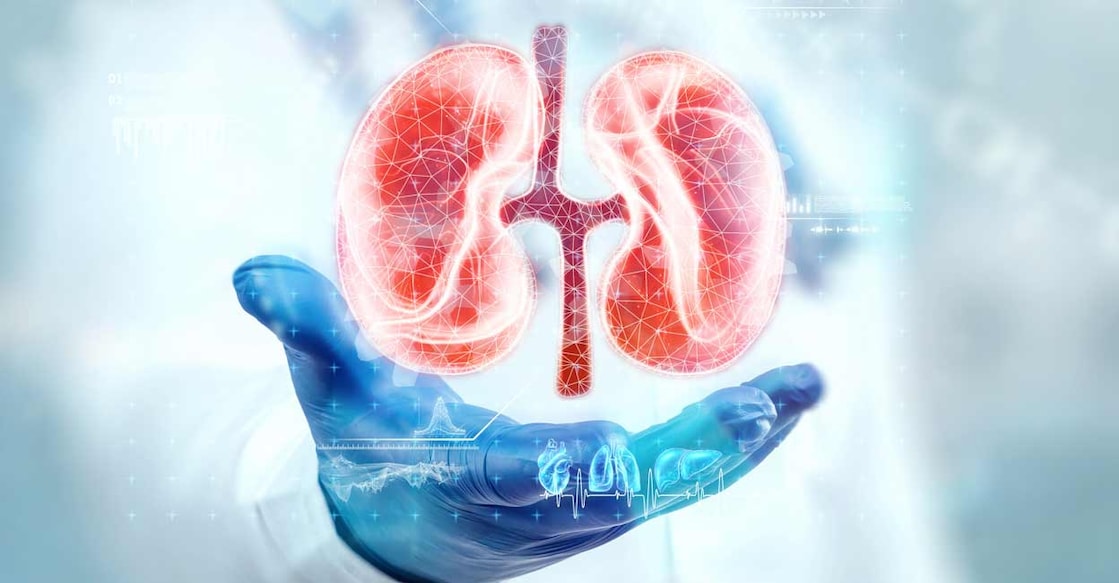World Kidney Cancer Day: Why is the 'silent' disease on the rise in India?

Mail This Article
Every year, the third Thursday of June is observed as the World Kidney Cancer Day. It is dedicated to raising awareness about kidney cancer, its symptoms, and the importance of early detection. Kidney cancer, or renal cell carcinoma (RCC), is a common malignancy with a large number of new cases diagnosed each year. It accounts for a significant portion of all cancers, and its occurrence varies by region. Developed countries see higher rates, partly due to better diagnostic capabilities and lifestyle factors like obesity and smoking. In India, while the incidence of kidney cancer is lower than that of Western countries, it is on the rise. This increase is linked to lifestyle changes, greater awareness, and improved diagnostic facilities.
A silent adversary
Kidney cancer often doesn’t cause noticeable symptoms in its early stages, making it a silent adversary. As the tumour grows, various symptoms might appear. You might notice blood in your urine, which can be a startling sight or might be detected through urine tests. Persistent pain on one side of the lower back or flank is another common symptom that shouldn't be ignored. Some people may feel a lump or mass in their abdomen or side. Unexplained weight loss and loss of appetite are other potential warning signs. You might feel persistently tired, or experience intermittent fever without any apparent infection. High blood pressure that seems hard to control can also be a sign.
How to diagnose it?
Diagnosing kidney cancer involves a combination of clinical evaluation, imaging studies, and sometimes a biopsy. Imaging studies like ultrasound, CT scans, and MRI are commonly used to get a clear picture of the kidneys and detect any tumours. Urine tests can reveal blood and other abnormalities, while blood tests help assess kidney function and detect markers associated with kidney cancer. In some cases, a biopsy might be performed to get a tissue sample for further examination.

What does the treatment involve?
When it comes to treating kidney cancer, the approach depends on various factors including the stage of the disease, the size and location of the tumour, and the patient's overall health. Surgery is often the primary treatment for localized kidney cancer. This can involve removing the tumour and part of the kidney (partial nephrectomy) or removing the entire kidney (radical nephrectomy). Ablation techniques, such as cryoablation (freezing the tumour) and radiofrequency ablation (using heat to destroy the tumour), offer less invasive options. Targeted therapy involves drugs that specifically target molecules involved in tumour growth and progression, making it a crucial option for advanced kidney cancer. Immunotherapy treatments work by boosting the body’s immune response against cancer cells. Radiation therapy, although less commonly used, might be employed to treat metastases or in cases where surgery isn’t feasible.
How to prevent the disease?
While not all kidney cancers can be prevented, certain lifestyle changes and preventive measures can reduce the risk. Smoking is a significant risk factor, so quitting smoking is a crucial step in lowering your risk. Obesity is linked to an increased risk of kidney cancer, making it essential to maintain a healthy weight through a balanced diet and regular exercise. Hypertension is another risk factor, so regular monitoring and managing your blood pressure can help. Adopting a diet rich in fruits, vegetables, and whole grains, while cutting down on processed meats and fats, can also be beneficial. Additionally, staying well-hydrated is essential for kidney health.
(Dr Deepthi TR is a Specialist in Early Cancer Detection and Prevention, Oncure Preventive and Healthcare Centre Kannur)

